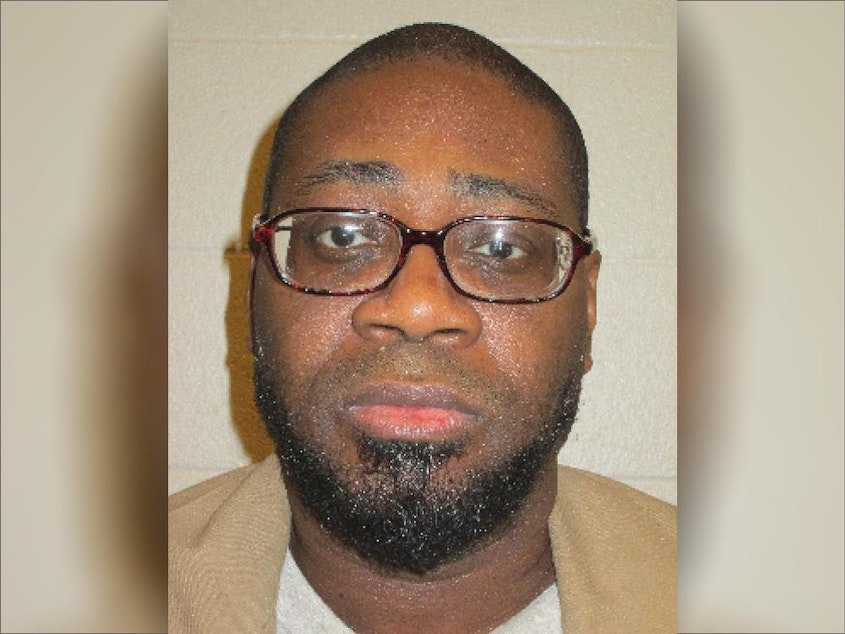Washington Supreme Court strikes down death penalty

The Washington state Supreme Court struck down the state’s death penalty Thursday and converted all death sentences to life in prison.
“It is now apparent that the death penalty is administered in an arbitrary and biased manner,” the court said.
The ruling stems from a 1996 case. Allen Eugene Gregory, 45, was sentenced to die for the rape and murder of Geneine Harshfield in Tacoma.
Citing a 2014 report by researchers at the University of Washington, Gregory's attorneys argue that black defendants in Washington are "more than four times as likely to be sentenced to death as other defendants."
The UW report said race didn’t appear to influence whether prosecutors sought the death penalty, but it was a factor in whether juries imposed a death sentence.
KUOW's 2008 in-depth look at the death penalty
"We don't know what Allen Gregory's jury was thinking," said Lila Silverstein of the Washington Appellate Project, one of Gregory's attorneys, told KUOW’s Austin Jenkins earlier this year. "But what we do know based on this study is that had Allen Gregory not been black, his chances of being sentenced to death would have been notably lower.”
The Pierce County Prosecutor's office countered that the racial disparity study was fatally flawed and should not have been considered by the Supreme Court.
But the Supreme Court rejected that argument and relied on the study in its decision.
The justices said that the study showed that from 1981 through May 2014, black defendants were 3.5 to 4.6 times as likely to be sentenced to death than other defendants.
King County Prosecutor Dan Satterberg attended the last execution in 2010 when Cal Coburn Brown was executed by lethal injection.
“At the end of the day these cases are all going to be sent to prison to die,” Satterberg said. "They’re not going to get out.
"The fight over the death penalty was whether we could hasten the date of their death or not. I think the criminal justice system is stronger without the death penalty in our state.”
Jacob Campbell was 12 when his father, Charles Campbell, was executed by hanging in 1994 for the brutal murders of two women and a child.
Campbell welcomed the ruling, but also said he can understand why family members of his father's victims wanted to see his father executed.
“I think it's really easy for us to say that these people are monsters. That these people are horrible people. To me, he wasn't a monster, he was my dad," Campbell said.
Campbell said that he’d rather see the money spent on the death penalty used to heal victim’s trauma.
In the case of Allen Eugene Gregory, the court refused to revisit arguments about the conviction itself.
The ruling did leave open the possibility for the death penalty to return in Washington state: "The legislature may enact a 'carefully drafted statute' ... to impose capital punishment in this state, but it cannot create a system that offends ... constitutional rights."
Eight people are currently sentenced to death in Washington.
Cal Coburn Brown was the last person executed in this state, in 2010. Gov. Jay Inslee issued a moratorium on executions in 2014.
Dick Morgan, former head of the state Department of Corrections, was involved in three executions.
"I had to wrestle a lot with what my duty was versus what my personal feelings were," he said. "I’ve always had the belief that the government shouldn’t kill its own citizens.
"Today is a better day.”





